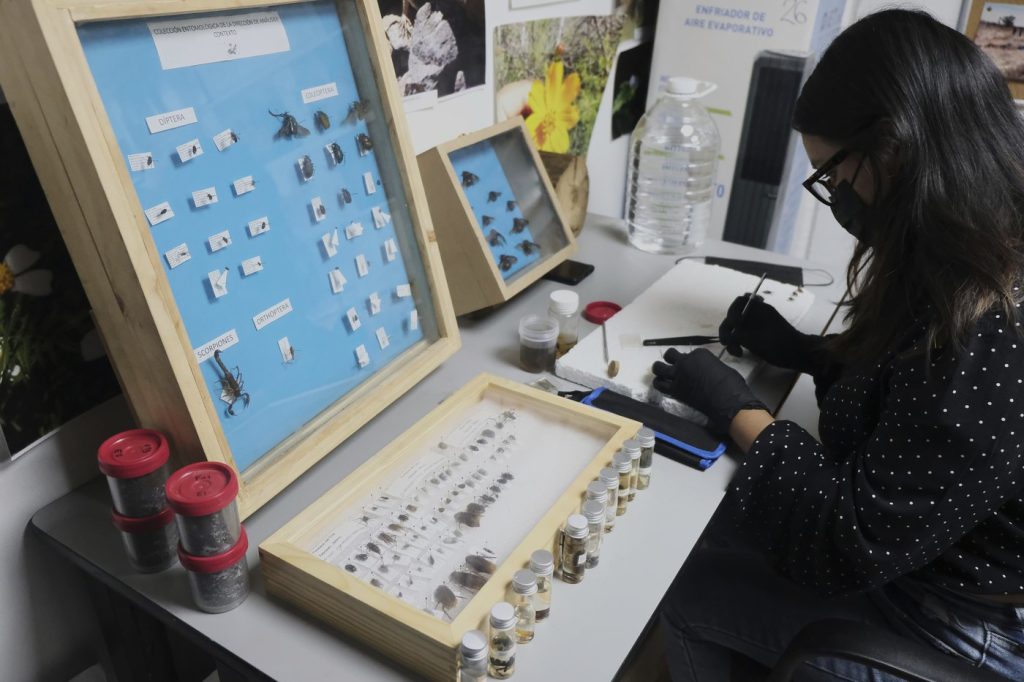ZAPOPAN, Mexico (AP) In an innovative but unsettling approach to address the alarming issue of missing persons in Mexico, scientists are utilizing deceased pigs as stand-ins for humans. This research initiative is aimed at leveraging advanced techniques in satellite, geophysical, and biological mapping to assist in locating the estimated 130,000 people who have vanished in the country due to long-standing drug cartel violence.
The crisis of missing persons in Mexico has escalated dramatically since 2006, following then-President Felipe Calderón's military campaign against drug cartels. This strategy resulted in intensified violence and a systemic failure of authorities to effectively manage the growing issue of disappearances. As organized crime factions splintered, the practice of making individuals disappear became increasingly common, resulting in over 130,000 officially recorded missing individuals, the highest in Latin America.
Family members often undertake the search for their loved ones independently, driven by scant support from authorities. They carry out treacherous searches through cartel-controlled territories, utilizing metal rods to probe for graves and relying on their instincts and local information. More than 6,000 clandestine graves have been discovered since 2007, with new finds reported frequently, leaving tens of thousands of remains unrecognized.
The state of Jalisco, home to the notorious Jalisco New Generation Cartel, has the highest count of missing individuals, totaling approximately 15,500. Recent investigations have revealed human bone fragments and clothing at cartel properties, although officials have dismissed the idea of mass graves in those locations. José Luis Silván, a lead researcher from CentroGeo, emphasizes that Jalisco’s missing persons crisis drives their efforts.
This ambitious mapping project, initiated in 2023, brings together academics from Guadalajara University, Mexico's National Autonomous University, and the University of Oxford, in conjunction with the Jalisco Search Commission that coordinates local searches. Derek Congram, a Canadian forensic anthropologist, praises this creative initiative, noting that no other nation is experimenting with technology to this extent in addressing such social issues.
However, Congram also underscores the limitations of technology, suggesting that most effective searches rely heavily on eyewitness accounts and traditional digging methods. As part of the research, scientists have buried pigs to study how decomposition affects the surrounding environment. They look for changes in vegetation and soil composition, which can indicate the presence of human remains. Silván notes that decomposition creates unique ecological markers, aiding in locating potential graves.
The project employs state-of-the-art tools, including drones equipped with hyperspectral cameras to analyze the soil and detect chemical changes during decomposition. Some grave sites are even enclosed in acrylic glass, allowing researchers to observe the decay process of the pigs in real time. The integration of biological data from flies, beetles, plants, and soil samples from both pig and human graves forms a comprehensive research approach to better understand the indicators of burial sites.
This research was catalyzed by the widely-publicized disappearance of 43 students in 2014, prompting Silván and colleagues to study grave detection techniques utilized across the world. By merging their scientific findings with the practical knowledge of families affected by disappearances, they are developing methods that could lead to successful recovery of both missing persons and remains.
Families such as Maribel Cedeño, who have been searching for loved ones, express hope that the technological advancements will enhance their efforts. Despite frustrations over the timing and potential inadequacies of these research methods, the Jalisco Search Commission remains proactive, integrating early findings into search operations where possible, although there are concerns about the widespread adoption of such high-tech solutions across Mexico.
Overall, this initiative underscores the interplay between science and social responsibility, aiming to address a dire humanitarian crisis through innovative methodologies while navigating a challenging landscape of violence and loss.











